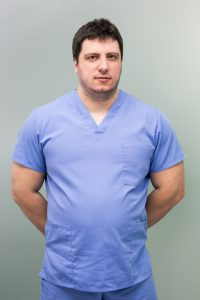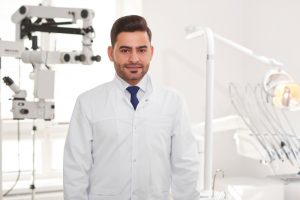INTRODUCTION
Welcome to Human Growth Hormone, HGH.tv - We specialize in age management programs that focus on preventive medicine as a means to reduce the adverse effects of aging.
Our programs are a result of extensive medical research and advances in biotechnology,
which have allowed us to combine both mainstream and alternative medical treatments in an effort
to provide individuals with the benefits of a vibrant lifestyle and extended lifespan.
Human Growth Hormone combines several medical specialties that involve nutrition profiling, body chemistry, conditioning, and hormone modulation, which deals with the endocrine system as a critical factor in medical hormone balance. This guide will help you understand the importance of such  hormones as Human Growth hormones, Estrogen, Testosterone, Melatonin, and DHEA, that
hormones as Human Growth hormones, Estrogen, Testosterone, Melatonin, and DHEA, that
decline as we get older beyond 35 years of age. You may already be experiencing many chronic deficiencies that directly cause premature aging; a hormone deficiency or nutritional imbalance causes many.
Do you feel tired more often or forgetful, easily stressed or anxious, sudden weight gain, muscle loss, and a diminished appearance or physique? All the mentioned conditions directly impact your lifestyle, leading to poor job performance, low self-esteem, lack of ambition, and a diminishing sex drive.
Through our network of specialists and trained counselors, we can provide you with a safe and
effective way to enter a medically supervised program designed to deliver
the medical result you desire. We will be with you every step, providing you with the
guidance and advice to provide an exceptional outcome.
After reading this guide, you may have questions, and we are here to provide you with answers.
We know you will be eager to start on the path to a healthy and vibrant lifestyle; please call us
with any questions you may have, and one of our counselors will assist you.
HOW DO YOU KNOW IF YOU NEED THERAPY?
What if we told you that Human Growth Hormone has the power to reverse symptoms associated
with the aging process and can make you feel, look, perform and live better,
what would you think?
Human Growth Hormone has successfully treated thousands of patients with hormone replacement
therapy, primarily focusing on medically supervised Human Growth Hormone (HGH) and
Testosterone Replacement Programs.
Right now, it is very likely your levels of Human Growth Hormone and testosterone are not
at their medical level. Take this simple quiz to see if you are a candidate for Hormonal
Replacement Therapy (HRT):
| Do you have a decrease in libido (sex drive)? | Yes | No | |
| Do you have a lack of energy and motivation? | Yes | No | |
| Do you have a decrease in strength and endurance? | Yes | No | |
| Have you developed love handles or a spare tire'? | Yes | No | |
| Are you losing your figure and muscle tone? | Yes | No | |
| Have you noticed a decrease in enjoyment of life? | Yes | No | |
| Do you tend to be sad and grouchy? | Yes | No | |
| Do you easily tire in the afternoon or after meals? | Yes | No | |
| Do you find yourself being forgetful? | Yes | No | |
| Do you lack drive and ambition? | Yes | No |
If you have answered yes to at least half of these questions, chances are, you may already
have low to moderately low levels of either Human Growth Hormone or Testosterone.
Fortunately, there is something Human Growth Hormone can do to help. Through one of our
programs we can elevate your levels to the medical ranges you may have enjoyed in your
younger years.
Hormone Replacement Therapy- Q&A
What is HRT?
Hormone Replacement Therapy (HRT) is a proven and effective process in which hormone levels are returned to normal.
Good levels will help maintain your energy levels, healthy mood, increased fertility, and sexual
desire. This therapy involves Human Growth Hormone (HGH) and Testosterone. HGH is the most significant protein
produced by the pituitary gland, composed of 191 amino acids.
HGH is genetically engineered of the
same 191 amino acids. It is the same genetic engineering used for insulin. Cloning the identical sequence of the
DNA for that of HGH makes it physically, chemically, and biologically identical to the one made naturally by
the pituitary gland.
Testosterone is the Androgenic Hormone primarily responsible for the average growth and
development of the male sex and reproductive organs. It facilitates the development of secondary male sex
characteristics such as musculature, bone mass, fat distribution, hair patterns, and vocal cord thickening.
How are the hormones replaced?
Testosterone is replaced using either weekly subcutaneous (under the skin) injections or a specially formulated
transdermal topical gel. The gel is typically applied to the skin's surface in the morning, and HGH is
administered by daily injection. The Human Growth Hormone Doctors and Medically Trained Counselors will explain the
easy and painless process.
Is it safe?
Yes! Numerous studies have come out over the past years that have attested to the safety of
natural hormone replacement.
Does it work?
Yes! This is not a fanciful search for the fountain of youth. It is medical science at its best. Over the years, there
have been thousands of case studies and medical trials that provide absolute, conclusive evidence that hormone
therapy works and has many benefits that result in better health, energy, and sexuality.
Board Certified Physicians using sophisticated lab tests and treatment protocols make possible these favorable, life-altering
results.
When should I think about replacing hormones?
The typical person's hormones start to decline by the mid to late 20s. By age 35, declines are sufficient that
symptoms may be evident. A great time to start replacing hormones is between 35 and 55. However,
it is never too late. We have people in their 80s that have found a new life through HRT.
Do you recommend replacing both HGH and Testosterone at the same time?
Hormones may be replaced separately or in any combination. Better results are obtained from taking a combination
of hormones. We like to say there is a '1+1=3' relationship - since the results are three times as high when taken in
conjunction.
How will I lose weight?
HGH re-contours the body, changing your body composition to reduce fat and increase lean muscle mass.
It is like a metabolic liposuction, vacuuming the fat from underneath, particularly throughout the
abdominal area. Unfortunately, the more body fat you have in your midsection, your body releases less HGH.
HGH accelerates fat burning by making it available as a 'fuel.' By increasing free fatty acids,
HGH makes the fat stored available for energy production. This is due to fat cells having HGH receptors that
the HGH binds to. This triggers a series of enzymatic reactions in the cell to break down the fat. A process
called 'lipolysis.'
With HGH, you are changing the hormonal message telling your body to get rid of fat. HGH
also increases your overall energy expenditures so that you burn calories faster, a tremendous metabolic
aftereffect. Unlike other fat-reducing methods which work against the body, HGH works with your body's
natural order to lessen fat and increase muscle.
How will I build solid muscle?
HGH working thru IGF-1 increases the uptake of amino acids in the cell and enhances the synthesis of DNA
and RNA, extra-cellular proteins, carbs, and sugars. The result is an increase in cell size,
accelerating cell division and accelerating muscle growth. It also builds muscle by conserving
the nitrogen needed for muscle tissue.
Ordinarily, when you lose weight, you excrete nitrogen, but HGH
keeps the body from losing nitrogen. It also increases protein synthesis without increasing the breakdown
of proteins in the cell. Accelerated cell division also means speedy healing and repair after injury.
Will Hormone Therapy help sexual dysfunction?
Although sexual dysfunction can have many causes, replacing hormones is one of the best places to start
treatment. We suggest raising your testosterone to a healthy level along with growth hormone to boost
your sex drive. Many products increase the amount of nitric oxide in the blood to aid sexual
mechanics.
Products like Viagra will not assist with the overall sexual function; they temporarily fix the
mechanics of the problem. Our restorative Hormone Therapy Programs have been found to fix over 90%
of problems of sexual dysfunction and will have you eagerly performing at optimum levels.
Rarely will there
be a need to supplement our effective programs, but you may safely take additional performance
supplements with one of our programs.
Will hormone replacement cause my natural hormone production to decline?
Cycling hormones are designed to minimize the possibility of a decline in your natural hormone
production. Cycling is taking time off from hormone replacement.
When synthetic hormones are introduced
into the body, the gland producing that hormone senses that the body has an adequate supply of the
hormone and minimizes production. Cycling is mandatory for HGH and men under 45 on testosterone.
Are there side effects?
No evidence suggests any unfavorable long-term side
effects if used under a doctor's care. If abused, you may develop carpel tunnel syndrome, which is inflammation of wrist tendons, water
retention, gynecomastia (testicle shrinkage), or acromegaly (enlargement of the bones).
What about oral HGH or HGH stimulants?
It has been medically proven that HGH cannot be absorbed through the digestive system. Advertisements
that claim they have natural HGH in a spray or pill may only contain small amounts of HGH.
There is
some evidence that HGH can enter the bloodstream if absorbed directly into the membranes of the mouth. Still, oral HGH therapy is not as effective as a medically supervised injectable program.
Do I have to visit the Human Growth Hormone Clinic in Miami Beach?
No. We provide nationwide services through our network of affiliates. Within 48 hours of placing your
order, one of our counselors will call you to arrange for a blood test and a physical exam at an affiliate in
your area or the privacy of your own home or office.
How do I get started?
Our counselors will guide you through the various programs and
help you fill out a confidential patient medical history form. This process usually takes no more than 15
minutes and can be completed over the telephone. Provided you qualify for treatment, your order will be
shipped via FedEx.
What if the doctor does not write a prescription?
If your blood work or medical history results disqualify you from treatment, we will refund you 100%
within 24 hours.
WHAT TYPE OF RESULTS CAN I EXPECT?
| Although every case has its variations, generally, you can expect: 1st Month: 2nd Month: 3rd Month: 4th Month: 5th Month: 6th Month: Medical tests show a reduction in LDL cholesterol and triglycerides, blood |
HOW DO I GET STARTED?
Getting started on a Human Growth Hormone Replacement Program is easy. We have
set up a five-step plan to save time and effort and maximize results.
Entering one of our medically supervised programs is a relaxed and carefree process.
Step 1:
Our Medically Trained Counselors
will assess your goals and guide you through the various programs we offer.
Step 2:
Once you have chosen a program designed to deliver your specific results, Human Growth Hormone
will set up your account and ask you a series of qualifying questions to complete your
confidential medical history form. A process that usually takes no more than 15
minutes!
Step 3:
We will schedule a comprehensive physical examination within 48 hours of processing your information
and procure a blood specimen through our nationwide network of
labs and medical affiliates. If preferred, this can be arranged to be done in the privacy
of your own home or office. The results will be analyzed and sent directly to the Human Growth Hormone medical center.
Step 4:
Based on the results of the examination, lab work, and medical history, one of Human Growth Hormone's affiliate physicians will write your necessary  prescriptions for your supplies, and
prescriptions for your supplies, and
offer any qualified advice.
Step 5:
That same day, your program supplies will be shipped via FedEx directly to you from one
of our US-based associate pharmacies. You will soon begin your physician-supervised
Hormone Replacement Program.
It is that easy! All of our programs offer you a quick, safe and effective
way to self-administer a comprehensive anti-aging program. You are on your way to better
health, energy, and performance with Human Growth Hormone. Optimize your life!
INTRODUCTION TO HUMAN GROWTH HORMONE
Human Growth Hormone offers physician prescribed and medically supervised Human Growth Hormone (HGH)
replacement programs helping patients enter cost-effective, comprehensive age management and
physical development program.
HGH is one of several endocrine hormones, such as estrogen, testosterone, melatonin, and DHEA, that
decrease production as we age. While many of these hormones can be replaced to deter some aging effects,
HGH goes far beyond suspending these effects. Not only does HGH retard biological aging,
but it significantly reverses the aging process. Researchers have proven that HGH therapy can reverse the
effects of aging by as much as 20 years with less than one year of treatment. The benefits of HGH are seen
more and more as new studies manifest its many rewards. HGH Replacement Therapy is the key to
rejuvenation and adding years of vitality to your life.
Hormones can be thought of as "messengers" that are produced by the endocrine glands, which are sent all
over the body to stimulate specified activities. For example, growth, digestion, reproduction, and sexual
functions.
As its name suggests, HGH is a hormone that makes humans grow. HGH is a complex protein molecule
made up of 191 amino acids, which is secreted in pulses by the pituitary gland. These pulses vary between
10 and 30 per day and can be strengthened by exercise. For years, doctors could only prescribe HGH for
children who needed a growth boost; now, HGH is prescribed to adults since it is integral for functions like:
Tissue repair, healing, muscle growth, bone strength, brain function, physical and mental health, and
metabolism.
HGH is produced at a rate that peaks during adolescence when average growth is accelerated; however, the production of HGH decreases with age. Humans usually produce about 500 micrograms
(mcg) of HGH daily at 20. By age 80, the daily production falls to 60 mcg (or less).
Somatropin is the man-made version of HGH. Each manufacturer of somatropin assigns its brand
name, such as Genotropin, Humatrope, Norditropin, Saizen, and Serostim. They are available only by
prescription and administered by subcutaneous injection.
Once secreted by the pituitary gland, circulating levels of HGH stimulates the production of Insulin-like Growth Factor 1 (IGF-1)
from the liver. You can think of HGH as the hormone that gets the ball rolling, but IGF- 1,
sometimes called Somatomedin-C, does most of the work. It is the IGF-1 that stimulates cells to divide,
which causes growth. The amount of IGF-1 tends to mirror the amount of HGH that humans produce,
and because blood levels of IGF-1 are more stable, labs usually test for IGF-1 levels to read the HGH levels.
For most people, the pituitary gland produces sufficient HGH to retain a youthful appearance until age 35
or so. Then, somewhere between age 40 and 50, the body's ability to produce HGH declines to the point
where the effects of aging are accelerated and begin to show. Simply put, HGH keeps humans young and
attractive.
Human Growth Hormone offers HGH replacement therapy in the form of medically- supervised HGH programs designed to safely replenish and replace your body's own production of HGH. Whether your goals are anti-
aging or physical development, Human Growth Hormone has a cost-effective and comprehensive HGH program that
will deliver the results you want.
ANTI-AGING HGH BENEFITS
| Signs of aging and hormone decline
| Benefits of HGH replacement therapy
|
DYNAMICS OF HGH REPLACEMENT THERAPY
| HGH - Our hormone system is best understood if you think of it as a cascade with the brain at the top followed by the pituitary gland, then the target organs, e.g., ovaries, thyroid, testicles; and finally physical and mental functions, e.g., skin thickness, menstrual periods, sex characteristics, aggression, hair distribution, etc. Simply put, Human Growth Hormone (HGH) keeps humans young. For most people, the pituitary gland produces sufficient HGH to retain a youthful appearance until age 35. Then, somewhere between age 40 and 50, the body's ability to produce HGH declines, and the signs of aging become more apparent. Brain - The hypothalamus is part of the brain and is where hormone release originates, starting the cascade by secreting "releasing hormones," which activate the pituitary glands. Pituitary -The pituitary gland is known as our "master gland." It sits at the base of our brain and communicates directly with the hypothalamus by particular nerves and blood vessels. 'Releasing hormones' travel from the hypothalamus to the pituitary and stimulate the formation and release of pituitary hormones into our circulatory system. The pituitary hormones affect many organs, such as the thyroid, adrenal glands, testicles, ovaries, and breasts. | There are five primary pituitary hormones: Growth Hormone (GH) The pituitary hormones are released into the general circulation and affect specific target organs, which release their hormones. Thus, the pituitary hormones act like traffic controllers; they survey the scene, determine what is needed, and tell the organs when to release their hormones. |
BENEFITS VS. RISKS
effects attributed to HGH. Most studies about the use of HGH in adults and children fail to
show any cancer-related risks associated with HGH or higher levels of IGF-1. A review article published in the New
England Journal of Medicine on October 14, 1999, authored by Mary Lee Vance, M.D. and Nellie Mauras, M.D.,
concluded that "at present no evidence that Growth Hormone modulation affects the risk of cancer." All
patients should be aware.
However, that other reports do indicate that there may be a risk. In 1998,
two published studies claimed a higher incidence of prostate cancer among men with higher IGF-1 levels
years before the onset of cancer. However, a number of experts agree that these studies are inconclusive and
their methods may be flawed.
Problems cited within these studies included: the method of statistical analysis,
the interval between the blood sampling and the onset of cancer, and the absence of any IGF-1 measurement at
the time of cancer diagnosis. Several other studies show no difference in IGF-1 levels between ordinary healthy
men and those with prostate cancer at the time of diagnosis.
More recently, some studies point to a higher incidence of breast cancer in pre-menopausal women
(but not post-menopausal), who had higher IGF-1 levels one to five years before the onset of breast cancer. In this study,
the blood specimens were also drawn before diagnosis and were not analyzed for several years, making these
conclusions somewhat suspect and inconclusive.
Although most studies overwhelmingly point toward the safety of HGH, there is, as, in virtually any area
of medical science, some conflicting data among studies may confuse the issue. This is true because of the
complex nature of the human body and its physiology -- and the truism that medicine is not an exact science. As
with any medical therapeutics, we must evaluate the available information and
our needs and desires and measure these against any potential risk.
Your Human Growth Hormone team can help you understand and evaluate all available information.
We feel that the benefit of HGH therapy far outweighs the risk for most patients. Only you, however, can make the final decision.
To put it into context, similar controversy has surrounded the use of estrogen in post-menopausal women for the
past 30 years. Certain studies have shown that estrogen replacement in women may
increase the risk of breast and endometrial cancer and other risk factors.
However, because of estrogen's proven protective effects against many other diseases
(Alzheimer's disease, heart disease, osteoporosis, and colon cancer),
the overall mortality is lower in women who take estrogen than in those who do not. It will be some
time before there is as much data on HGH as there is on estrogen, yet we are convinced that most people
with lower IGF-1 levels, the benefits of HGH replacement therapy outweigh the risks.
STAYING YOUNG WITH HGH
There are many things one can do to "stay young." Being born with good genes, eating healthy foods,
exercising regularly, watching your weight, avoiding stress, and getting enough quality sleep. Good habits
we must all practice, yet these practices, in fact, only delay and postpone the signs, symptoms, and problems
associated with aging.
A medically supervised HGH program has many benefits that can improve life on many levels. All of the
choices that you already have about healthy living are still valid and should be practiced, whether you are
starting HGH therapy or not.
If you are serious about an anti-aging program, remember all good programs
should consist of discipline and commitment in five significant areas: HGH replacement, proper diet, nutrition,
exercise, and restful sleep.
seeking the "Fountain of Youth," it appears that medical science has achieved the first breakthrough,
Human Growth Hormone therapy.
The first major study showing the promise of HGH therapy was published in the New England Journal of
Medicine (Rudman; 323:1-6 1990). This study divided 21 men (between the ages of 60 and 80) with IGF-
1 level less than 350 IU per liter into two groups: 12 test subjects and 9 control subjects.
6 months of data collection were followed by a 6-month period in which the test subjects received
HGH injections. The results were promising: increased lean muscle mass decreased adipose fat tissue,
and increased vertebral bone height. All test subjects had measurable increases in HGH levels, as
measured by IGF-1 blood values.
On the other hand, the control subject group had none of these results. The effects of six months of human
growth hormone on body mass and adipose-tissue mass were equivalent in magnitude to the changes incurred
during 10 to 20 years of aging.
For a complete background on recent and past HGH studies and information on HGH therapy in general,
we suggest the book 'Grow Young With HGH' by Dr. Ronald Klatz (ISBN 0-06-098434-1).
HEALTHY LIVING AND HGH
Important issues to consider with an HGH replacement therapy program.
> Morning injections - Your HGH production occurs mainly at night, during periods of deep sleep. You can potentially discourage your average HGH production by injecting HGH at bedtime. So, it is better to inject in the morning. Also, many physicians recommend giving your body 1 to 2 "days off" per week.
Soft tissue swelling of the hands and feet is often an early symptom, with patients noticing a change in ring or shoe size. If you notice any signs of acromegaly, consult your Human Growth Hormone Counselor and/or Physician. |
Focus on diets containing plenty of vegetables, fruits, and water. Buying a book that gives the glucose ratings of various foods will help you avoid a high glucose intake.
> Water Drink plenty of water---every day! A hydrated body functions better and aids good health. |
INTRODUCTION TO TESTOSTERONE THERAPY
| Testosterone is the androgenic hormone primarily responsible for the average growth and development of male sex and reproductive organs, including the penis, testicles, scrotum, prostate, and seminal vesicle. It facilitates the development of secondary male sex characteristics such as musculature, bone mass, fat distribution, hair patterns, laryngeal enlargement, and vocal cord thickening. Additionally, normal testosterone levels maintain energy, healthy mood, fertility, and sexual desire. The testes produce testosterone regulated by a complex chain of signals in the brain. This chain is called the hypothalamic-pituitary-gonadal axis. The hypothalamus secretes gonadotropin-releasing hormone (GnRH) to the pituitary gland in carefully timed pulses (bursts), which triggers the secretion of the luteinizing hormone (LH) from the pituitary gland. Luteinizing hormones thus stimulate the Leydig cells of the testes to produce testosterone. Usually, the testes produce 4 to 7 milligrams (mg) of testosterone daily. Testosterone production increases rapidly at the onset of puberty and starts to decrease thereafter. It decreases rapidly after age 40 (from 20% to 70% of peak level by age 70). Approximately 50 million men in the United States experience testosterone deficiency, and approximately 700,000 receive treatment.
As men age, the decline in male sex hormones, called androgens, results in decreased muscular strength, a decline in energy, decreased libido, and an increased risk of erectile dysfunction resulting in poor sexual performance. Testosterone production declines naturally with age. Testosterone deficiency (TD) may result from disease or damage to the hypothalamus, pituitary gland, or testicles which inhibits hormone secretion and testosterone production, known as hypogonadism. Depending on age, insufficient testosterone production can lead to muscle and bone development abnormalities, underdeveloped genitalia, and diminished virility. | For men with a low level of free testosterone in the blood, testosterone or other Hormone Replacement Therapy (HRT) can be considered. HRT can help men with low testosterone levels and increase their libido and sexual arousal. Testosterone replacement can also improve muscle strength and bone mineral density in men and women with low testosterone levels. Androgens such as testosterone also promote an overall decrease in fat, an increase in muscle strength, and lean body mass. Testosterone replacement therapy has been shown to lift mood and decrease anxiety. It may enhance orientation and memory and may also have antidepressant effects. Whether your goals are anti-aging or physical development, Human Growth Hormone has a cost-effective and comprehensive testosterone replacement therapy program designed to get the desired results. You have taken the first step toward better health, increased energy, and improved sexuality by contacting us. Human Growth Hormone offers many testosterone programs to replenish and safely replace your body's testosterone production. |
TESTOSTERONE DEFICIENCIES AND BENEFITS
| Testosterone deficiency signs
| Testosterone replacement benefits
|
TESTOSTERONE DEFICIENCY
Types and Causes
Hypogonadism is classified by the location of its cause along the hypothalamic-pituitary-gonadal axis:
Primary, disruption in the testicles
Secondary, disruption in the pituitary
Tertiary disruption in the hypothalamus. Disease, injury, surgery, and drug side effects can cause
hypogonadism and testosterone deficiency. Hypogonadism is congenital or acquired, depending on the
nature of the underlying condition.
Congenital causes include the following:
Anorchia (vanishing testes syndrome; causing primary hypogonadism)
Cryptorchidism (failure of testicles to descend into scrotum; causing primary hypogonadism)
Hormonal deficiency (e.g., deficiency of luteinizing hormone (LH) releasing hormone; causing
secondary or tertiary hypogonadism)
Kallmann Syndrome (insufficient hypothalamic GnRH production; causing tertiary hypogonadism)
Klinefelter Syndrome (underdeveloped testicles; causing primary hypogonadism
Acquired causes include the following:
Chemotherapy
Damage is procured during surgery to the pituitary gland, hypothalamus, or testes.
Glandular malformation
Head trauma (affecting the hypothalamus)
Infection (e.g., meningitis, syphilis, mumps)
Isolated LH deficiency (e.g., Fertile Eunuch Syndrome)
Radiation
Testicular trauma
Tumors (of the pituitary gland, hypothalamus, or testicles)
TESTOSTERONE CONDITIONS & TREATMENT
Signs and Symptoms
Signs depend on the age of onset and the duration of hormonal deficiency. Congenital hypogonadism is
generally characterized by underdeveloped genitalia (testes that do not descend into the scrotum) and,
occasionally, undeterminable genitalia.
The development of hypogonadism near puberty can result in
gynecomastia (enlargement of breast tissue), sparse or absent pubic and body hair, and an underdeveloped
penis, testes, and muscle.
Adult men may experience diminished libido, erectile dysfunction, muscle
weakness, loss of body hair, depression, and other mood disorders.
Complications
Testosterone deficiency has been linked to muscle weakness and osteoporosis. Some studies show that proximal
and distal muscle weakness was detected in 68% of men with primary or secondary hypogonadism.
Spinal Trabecular and radial cortical bone density may also significantly reduce testosterone-deficient men.
30 % of men with spinal osteoporosis have long-standing testosterone deficiency, and one-third of these
testosterone-deficient men have subnormal bone density that puts them at risk for fractures and/or injury.
Diagnosis
Serum and blood testing are done to determine testosterone availability and levels of LH and GnRH
in the body. Men with low testosterone, in whom normal or high gonadotropin levels are found, typically
have primary hypogonadism, which may stem from a problem in the testicles.
Secondary and tertiary types,
caused by problems of the hypothalamus or pituitary gland, often result in low testosterone and low
gonadotropin levels.
Other tests involve injecting GnRH or clomiphene citrate (an estrogen) to stimulate a diagnostic response
within the hypothalamic-pituitary-gonadal axis. Rarely is there a need for a testicular biopsy, usually only
in cases where sperm is absent from ejaculate despite normal testicle development is it necessary. A biopsy,
which involves using a needle to collect a sample of testicular tissue, may detect a malfunction in sperm
production.
Treatment
Treatment involves hormone replacement therapy. The method of delivery is determined by age and
duration of deficiency. Human Growth Hormone offers many testosterone replacement therapy programs designed to
deliver maximum results in the safest way possible.
Who qualifies for testosterone therapy programs?
Treatment for adults is aimed at maintaining secondary sex characteristics, improving energy, strength,
mood, and feelings of well-being, and preventing bone degeneration. Modes of delivery include transdermal
(gel), injection, and oral forms of testosterone.
Transdermal delivery (absorbed through the skin) is used to administer therapeutic agents for hormone
replacement.
Transdermal replacement therapy with a gel or cream is becoming the most common treatment
for adult testosterone deficiency. It establishes and maintains adequate serum levels without causing
significant side effects.
Transdermal testosterone therapy's most common side effects may include itching, discomfort, and irritation at the application site.
Some men may experience fluid retention, acne, and temporary gynecomastia. Human Growth Hormone can prescribe medications that
help prevent these side effects if necessary.
This method delivers testosterone for 24 hours when used correctly. The gel must be allowed to dry on the
skin before contact with clothing and applied at least 6 hours before showering or swimming. The
gel should not be applied directly to the genitals.
Kallmann Syndrome in adults may be treated with human chorionic gonadotropin (HCG), which can cure
cryptorchidism and infertility. Human Growth Hormone has programs that include HCG and can answer any of your
questions.
Intramuscular (IM) injection is used less frequently because it is associated with erratic testosterone
levels. Levels that shift abruptly between doses may cause fluctuating moods, disrupt energy levels, and
interrupt your libido.
Even so, many athletes and sports people favor IM injections because of the
quick results and concentrated method. Human Growth Hormone has programs that include the most popular and
safest forms of injectable testosterone, such as Nandrolone Decanoate, Cypionate, and Propionate.
Possible side effects
Testosterone replacement therapy aims to achieve normal to medical levels of testosterone. For
For most patients, testosterone replacement therapy is safe.
Possible side effects, however, include water retention, male pattern baldness, and gynecomastia (enlarged
breasts). The oral forms are also associated with some liver problems, and using large doses of
testosterone (in bodybuilding, for example) increases the risks of these side effects.
Decreased average testosterone production and prolonged or excessive testosterone therapy prompt
the pituitary gland to stop producing the hormone gonadotropin. This, in turn, suppresses normal testosterone and sperm production,
accompanied by shrinkage of the testicles and frequent or continuing (and sometimes painful) erections.
Because of this, testosterone replacement therapy is usually prescribed in
cycles. After a 2- or 3-month period, the patient takes a different drug (such as HCG) that stimulates the
testicles to begin production again.
Remember, the Human Growth Hormone team will give qualified guidance through the various programs available
and individually counsel each patient through the expected benefits and any potential risks.
TESTOSTERONE PROGRAMS AVAILABLE
TESTOSTERONE
| Testosterone Cypionate: Long-acting oil-based injectables will keep testosterone levels sufficiently elevated for approximately two weeks. It is said to produce a slightly higher level of water retention and slow down the release of testosterone, causing less production of estrogen buildup. However, since testosterone is high in estrogen conversion, it can cause gynecomastia; this is why an accompanying drug like Nolvadex is added. Although active in the body for much longer, Cypionate is injected weekly. Testosterone Propionate: Oil-based injectable containing ester slows down the release for a few days. The Propionate is much faster acting and requires a much more frequent dosing schedule that can irritate the injection site. At the same time, the buildup of estrogen and DHT will be pronounced, increasing the risk of gynecomastia. Users, therefore, need to add an anti-estrogen such as Nolvadex to counteract this occurrence. Propionate is a powerful mass-building drug capable of rapidly increasing size and strength. Nandrolone - Decanoate (Deca): Extremely long-acting compound, with a slow release time of up to three or four weeks. It exhibits much weaker androgenic This can also show a significantly lower tendency for estrogen conversion, making water retention a non-issue. Deca has shown not only to be effective at safely bringing up the lean body weight but is beneficial to the immune system and works to lubricate the joints. Deca is not known as a "fast" builder. The slow onset and its mild properties make this more suited for cycles of a longer duration. With a cycle lasting 8 to 12 weeks, one can expect to elicit a slow even gain of quality mass. Testosterone Gel: A clear, colorless, alcohol-based gel that gets applied once daily to the inner groin (being careful not to apply directly to the genitals). Upon application, the gel dries within a few minutes, and the skin absorbs the testosterone. This serves as a reservoir for the hormone, which slowly enters the bloodstream. Normal testosterone levels are usually achieved soon after the application. One can experience a significant increase in libido (sex drive), lean body mass, fatigue reduction, bone density, energy levels, and muscle strength and endurance. |
TESTOSTERONE ANCILLARY SUPPLEMENTS
| ESTROGEN BLOCKERS Arimedex (Anastrozole): A non-steroidal agent, Arimidex is the aromatase inhibitor of choice. Especially appropriate when using substantial amounts of aromatizing steroids or when one is prone to gynecomastia while using moderate amounts of such steroids. Arimidex can achieve a high degree of estrogen blockade. However, it is possible to reduce estrogen too much with Arimidex---for this reason, blood tests, or the less preferred salivary tests, should be done after the first week of use. This will determine if the dosing is correct. Arimidex's action mechanism blocks the conversion of aromatizable steroids to estrogen. Clomid ( Clomiphene Citrate): Not an anabolic steroid, but a synthetic estrogen with both agonist/antagonist properties, and it is very similar to Nolvadex. It is used to block negative feedback of estrogens which can cause gynecomastia, and enhances the release of LH and FSH, causing natural testosterone production to increase. This is most beneficial after a testosterone cycle. If testosterone levels are not brought back to normal, a dramatic loss in size and strength can occur. Dosages range from 50 to 100mg daily over four to six weeks, bringing testosterone production back to normal. Nolvadex (Tamoxifen Citrate): A non-steroidal agent that demonstrates potent antiestrogenic properties. This drug also shows the ability to increase the production of FSH and LH in the male body. This is accomplished by blocking negative feedback inhibition caused by estrogen, which can cause gynecomastia. Since a higher release of LH can stimulate Leydig's cells in the testes to produce more testosterone, Nolvadex can positively impact one's serum testosterone level and help restore a balance in hormone levels. It can also increase the rigidity and definition of the muscles. Nolvadex should be taken on the third week of a testosterone cycle until the point when natural testosterone levels are well under control. Dosages are typically in the range of 10 to 30mg daily. Teslac (Testalactone): Also, an estrogen blocker would be used with HGH instead of Nolvadex or Chlomid, which can suppress the effects of HGH. Teslac blocks negative feedback caused by estrogen and can increase the production of FSH & LH. This stimulates the Leydig cell in the testes to produce more of your natural testosterone. It also helps to harden and define muscles, as well as help restore a balance in hormone levels. | LH HORMONE RELEASER Novarel/HCG (Human Chorionic Gonadotropin): Used to stimulate the production of endogenous testosterone. It can mimic the LH, a pituitary hormone that stimulates the testes to manufacture testosterone. Excessive stimulation can likewise cause the testicles to return to their standard size and activity level rapidly. Dosages range from 1000- 2000mg for a duration usually no longer than 2 or 3 weeks. A combination of HCG and Nolvadex appears to be very synergistic, HCG providing an immediate effect on the testes (shocking them out of inactivity). At the same time, the antiestrogenic helps to block the inhibition of gynecomastia.
|
1 Information listed in this document is provided for informational purposes and is not meant to substitute for the advice provided by your physician or another medical professional. You should not use the information herein to diagnose or treat a health problem or disease or prescribe medication. If you have or suspect a medical problem, promptly contact your healthcare provider.
2 These statements have not been evaluated by the Food and Drug Administration.



 properties than testosterone and is less likely to cause unwanted androgenic side effects.
properties than testosterone and is less likely to cause unwanted androgenic side effects.
